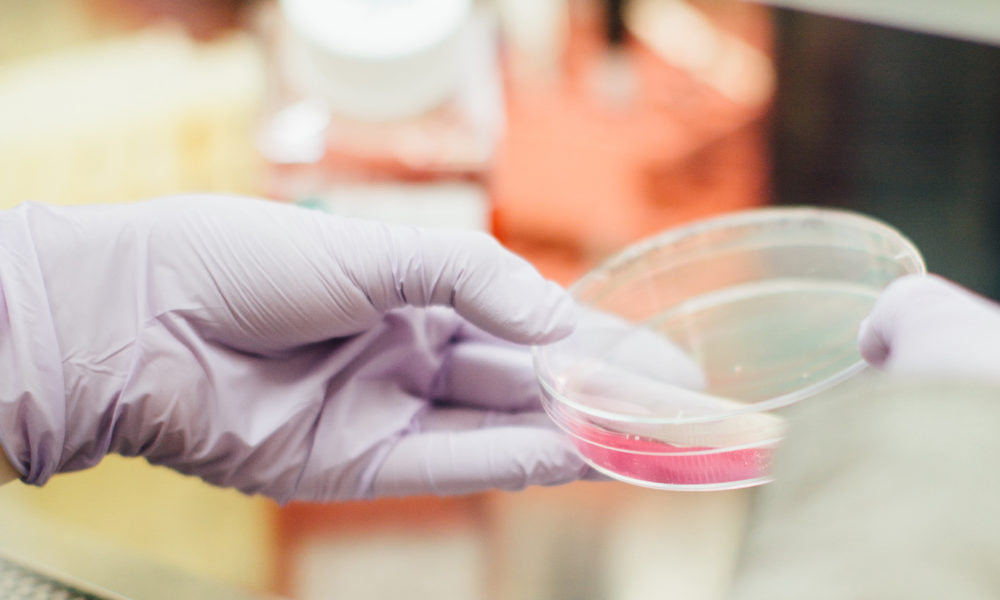The Trump administration has (once again) used a scientific advisory committee to further undermine science, this time undercutting critical research using fetal tissue. The Human Fetal Tissue Ethics Advisory Board created in February 2020 held its sole meeting in July to review the ethical merits of 14 National Institutes of Health (NIH) grant applications for research using fetal tissue. Its report released this week recommended to NIH that all but one should be rejected by the agency. A closer look at the context for the creation of this board, its membership, and its charge by Department of Health and Human Services (HHS) Secretary Alex Azar reveal that this process was rigged from the start to help extinguish these types of research projects. While this field of research has been under attack by anti-abortion lobbyists before, this new tactic threatens the future of promising research that can help save lives, as it has in the past.
Human fetal tissue research saves lives and there is no good substitute for its use in testing disease treatments and vaccines. As the world invests in research aimed at stopping the spread of COVID-19 and saving lives, cutting fetal tissue research has meant literally stopping the work of scientists making progress on effective COVID-19 treatments. As the COVID-19 pandemic continues to risk our lives and livelihoods, our government assures us it’s doing everything it can to develop treatments and vaccines. Instead, it’s using every play in an anti-science playbook to defund research and block medical researchers from making safe and effective discoveries. The irony of defunding this research while pushing for vaccine development at “warp speed” is all too apparent. With so much at stake, why would HHS dedicate so much time and effort to ending federal fetal tissue research and now federally-funded external research?
Taking the science out of science committee
The Trump administration’s purge of fetal tissue research began in September 2018 when HHS announced it would audit its fetal tissue research program. In June 2019, HHS discontinued all research at NIH involving fetal tissue and announced that all new or renewed grants will have to go through an ethics review board. Later that year, HHS announced its plans to form the ethics board. Grants submitted after late September 2019 would be subject to review by this board which is deemed a “scientific technical program board” by the General Services Administration. The statutory backing of the formation of the committee is from federal code related to the formation of Institutional Review Boards to ensure that research involving human subjects is ethically sound. But the grant applications reviewed by the new Ethics Board already gained IRB approval. Suggesting that fetal tissue research should go through an additional ethics review process, and then setting up that process for sweeping rejections, removes all doubts that this is a legitimate review in any way, shape, or form.
The charter for the committee further illustrates how the ethics board is a sham. It directs that the committee’s “Recommendations will address whether the Secretary should withhold funds or not withhold funds from a proposed project because of ethical considerations.” Despite it being a scientific committee, with scientist membership, it is making decisions based solely on “ethical considerations” rather than scientific merit. And despite the fact that HHS has previously deemed fetal tissue research to be legal and ethical under a certain set of criteria, committee members with biased views can recommend the rejection of grant applications because of subjective determinations about how research is unethical.
The board made it clear that ethical considerations were deciding factors in their decisions on grant applications in its report. While its report recommended that NIH reject 13 of 14 applications for ethical reasons, according to the NIH, all 14 of the grant and contract applications had qualified for government funding based on scientific reviews. Forming a scientific advisory committee, over half of which are scientists, and asking them only to make decisions based on ethics raises a red flag and points to this rigged process from the start.
Members ooze impartiality and bias
The call for nominations of members on this committee came upon announcement of its formation in February. According to the Federal Register notice, the committee would be made up of at least one-third scientists with “substantial accomplishments in biomedical or behavioral research.” HHS did not issue a list of nominees for comment (as is good practice for advisory committees), and instead announced the names of the members the same day that the committee was set to first meet in July. Even before reading the list of members, this secretive process with no opportunity for public participation in selection of the committee was already shady.
The list of board members makes a mockery of the Federal Advisory Committee Act’s call for committees to be fairly balanced. Equity Forward’s research on committee members revealed that ten have connections with organizations with anti-abortion policy agendas that have influenced their scientific research and decisions. Five of the members are employees of or affiliated with the Charlotte Lozier Institute, which is the research arm of the anti-abortion organization Susan B. Anthony List. The organization has lobbied the administration to ban research using fetal tissue even as the government rushes to find treatments and vaccines for COVID-19 which would benefit from it.
The chair of the board, Paige Comstock Cunningham, is the former president of Americans United for Life and a longtime anti-abortion activist who has testified before Congress that fetal tissue research is “unnecessary and its results have been “meager,” a position that flies in the face of extensive evidence of the fetal tissue research contributions.
Another member and Charlotte Lozier Institute scholar, Dr. Kathleen Maria Schmainda, testified before Congress at the same hearing that there is little value to fetal tissue research. Her own employer at the time, Medical College of Wisconsin, then published an opinion in the Washington Post rejecting her view and stating “there is no doubt about the potential lifesaving value of fetal tissue in advancing medical progress.” A factual correction issued by one’s employer should be a red flag for an advisory committee meant to be make recommendations based on evidence. Having a stated opinion or political view shouldn’t disqualify someone from serving on an advisory committee. But appointing individuals who are on the record disputing scientific consensus calls into question whether the goal was for the board to make evidence-based decisions at all.
A gerrymandered process with predictable results
Since its start, the Trump administration has made clear its intentions for fetal tissue research. It appointed former anti-abortion lobbyists to key positions at HHS, it ended federal fetal tissue research, and it hand-picked advisors that would help ensure the termination of many, if not all, federal grants or contracts using fetal tissue research. The tactic of creating a gerrymandered advisory committee to help support a policy decision is one we’ve seen before.
This process was carefully crafted to get a seemingly credible body to reject research applications involving fetal tissue and help put an end to government funding of this research. Its vetting procedure to investigate conflicts of interest and bias was clearly flawed (if employed at all) and its lack of transparency throughout the process of creating the committee and holding deliberations speak to its lack of integrity. I don’t recall ever reading in the Federal Advisory Committee Act the need for members to sign nondisclosure agreements about deliberations, for example. In July, UCS joined with over 90 scientific, medical, and patient organizations to ask that the board consider “the scientific and medical significance of fetal tissue research,” but the request was not fulfilled.
A dissent at the end of the board’s report, written by two members, sums it up:
“This board was clearly constituted… so as to include a large majority of members who are on the public record as being opposed to human fetal tissue research of any type. This was clearly an attempt to block funding of as many contracts and grants as possible… The outcome of the Board’s deliberations are thus clearcut and will paradoxically fail to reduce the use of human fetal tissue in the development of humanized mice needed for therapy development including for COVID-19.”
Not all advice is created equal
Since 2017, the Trump administration has made clear its prioritization of religious beliefs over science when it comes to policies on women’s reproductive rights and research using fetal tissue. The HHS under the Trump administration has described its department as “pro-life, pro-science.” This characterization is far from the truth. The anti-abortion movement has spent decades mischaracterizing science to undermine protective policies and actively push an agenda that is harmful for women’s health. And the administration has appointed several individuals to HHS posts with views far outside the scientific mainstream.
Hampering scientific innovation on non-scientific, subjective grounds sets a dangerous precedent. With all we know about the benefits of fetal tissue research, it’s hard not to think about the chilling effects of Trump administration actions, resulting in research projects on conditions and diseases and potential vaccines that will never see the light of day. What scientific developments will we miss out on because of this administration’s decisions? How many lives would have been improved or even saved?
HHS should listen to the science and reverse its decisions to ban internal fetal tissue research and effectively ban funding of external research. It should commit to funding research that has scientific merit and is ethically sound, and put an end to gerrymandered advisory committees that are not fairly balanced nor making fair judgments

